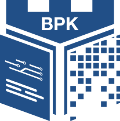Main content
Quo vadimus? Fragmentacja a integracja myślenia o zrównoważonym środowisku zurbanizowanym
updating
Type: paper published in a book
- Author
- Title variant
- EnglishQuo vadimus? Fragmentation or integration of thinking related to the sustainable development of the urbanised environment
- Published in
- Abstract
- W swej działalności człowiek wielokrotnie dowodzi, że choć uważa własne decyzje za wynik racjonalnego rozumowania, podejmuje je w imię idei, które są niesprawdzone i których implementacja przynosi owoce złe obok tych dobrych. W pracy autor podejmuje próbę przyjrzenia się powiązanym ze sobą elementom obrazu energooszczędności jako trendu współcześnie standaryzowanego i narzucanego w formie regulacji prawnych. Rozważania mają na celu zapoczątkowanie dyskusji, czy wyznaczone cele są pryncypialne i czy powinny podlegać rewizji. Czy zasady oszczędzania energii są skonstruowane prawidłowo, czy są adekwatne do rozwoju cywilizacyjnego, czy też są produktem innych oddziaływań, niekoniecznie przynosząc korzystne rezultaty. Konkluzją jest poszukiwanie propozycji rozwiązań systemowych, pozwalających usprawnić funkcjonowanie mechanizmów oszczędzania energii.Throughout the history human activities proved many times that seemingly the most reasonable motives, decisions grounded very deep and being the result of strict, disciplined rational thinking, in fact serve the unverified ideas, paradigms established socially that bring as much spoiled fruits as good ones. In this paper the author attempts to review the elements of panorama of the conservation of energy. This trend is contemporarily standardized and imposed with legal regulations. Considerations aim at starting the discourse on the subject of whether the goals of these regulations are principal or should they be revised. Are saving energy rules constructed appropriately? Are they properly adjusted to the level of development? Or maybe they have been conceived as a result of other influences, not necessarily bringing positive results? The article concludes by giving several systemic proposals to improve energy efficiency on a wider scale.
- Keywords
- energooszczędność, rozwój zrównoważony, techniki oszczędzania energiienergy saving, sustainable development, energy-efficient technology
- Pages range
- 77-94
- Language
- Polish
- Place of publication
- Publisher
- Publication date
- 2015
- ISBN
- 978-83-64235-74-0
- Conference name
- Conference number
- [LXI]
- Conference venue
- Conference date
- 2015
- Go to the Publication
- Link to the CUT Library catalogue


